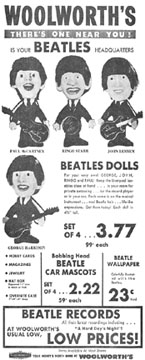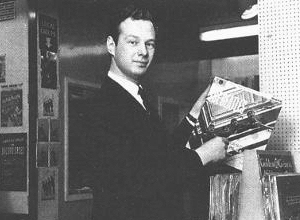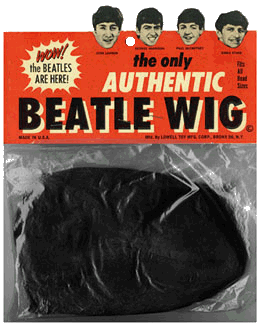| David Jacobs drew up the Stramsact-Seltaeb
/ NEMS agreement with Byrne asking for, and receiving 90% of the
profits! Jacobs and Epstein, not fully fathoming the value (both
monetary and cultural) of this business, believed that their 10%
is better than the nothing they were currently getting. |
| They had
no idea of how massive this side of pop culture could be. In all
likelihood, the Beatles and NEMS lost millions of pounds and dollars
on the sale of Beatles inspired goods from the aforementioned wigs
to the more common lunch boxes, clothing, and publications. [The
lesson has not been lost on the remaining members of this crew who
now jealously guard and control access to their image and materials.] |
| Lennon later commented: |
I like Brian,
and I had a very close relationship with him for years. I was
the closest to Brian, as close as you can get to somebody who
likes a sort of fag life. In the group I was the closest to
him. He had great qualities and he was good fun. He had flair
and he was a theatrical man rather than a businessman, so in
that way, I liked him. But on the business end, he ripped us
off on the Seltaeb thing! Brian made some deal somewhere, and
I know Brian ripped us off. We never got anything out of it
(Seltaeb) and Brian did! NEMS was a bigger company than the
Beatles was. We have no company. The myth is that he was the
great, good guy. Brian was a fag, and in tortured pain."
(Badman 2000: 79)
|
| For a website devoted
to Beatle finances go to Beatle
Money. |
|
 |





